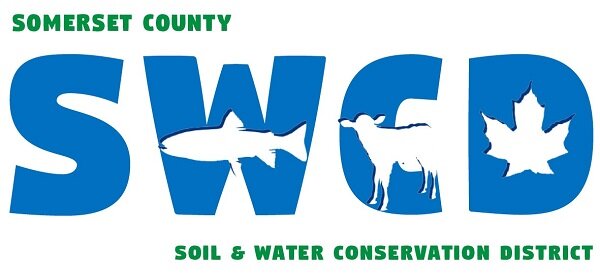Winterizing Your Land: Tips for Protecting Trees and Soil
Maine winters can be unpredictable, with temperature swings, heavy snow, and strong winds challenging even the healthiest landscapes. Fortunately, with a bit of preparation, we can mitigate winter damage to your woodlots, farms, and backyard.
Protecting Your Trees
Trees are integral to any property, whether they provide shade, act as a windbreak, or yield fruit. However, winter poses unique threats, especially for young or newly planted trees. Here are three essential practices to safeguard them during the cold months:
1. Apply Mulch
One of the simplest yet most effective measures you can take is applying a layer of mulch around the base of your trees. Mulch acts as insulation, protecting tree roots from the freeze-thaw cycles that cause frost heave—a condition that can destabilize young trees by pushing their roots upward. It also helps retain soil moisture and reduces weed competition.
How to Do It Right: Spread 2-4 inches of mulch in a ring around the tree, keeping it several inches away from the trunk to prevent rot. Organic mulches like straw or wood chips work best. Remember, the goal is insulation, not suffocation.
2. Wrap Young Trees
Young trees, particularly those with thin bark, are susceptible to sunscald and rodent damage in winter. Sunscald occurs when the bark warms in the sunlight, only to crack when temperatures plummet at night. Rodents, on the other hand, often gnaw on bark beneath the snowline, leaving the tree vulnerable to disease.
Solution: Use commercial tree wrap or burlap to protect your trees. Start at the base and wrap upward in a spiral, overlapping slightly. Secure the wrap with twine or tape and remove it in the spring.
3. Water Before the Freeze
One commonly overlooked step is watering your trees deeply before the ground freezes. Proper hydration helps trees withstand winter stress and reduces the risk of dehydration, which can occur even during dormancy.
Key Tip: Water slowly and thoroughly in late fall, ensuring the soil is moist but not waterlogged. Newly planted trees benefit the most from this practice.
Protecting Your Soil
Soil is the foundation of every successful landscape, yet it often faces significant challenges during winter. From erosion to compaction, winter conditions can degrade soil health if precautions aren’t taken. Here’s how to protect it:
1. Plant Cover Crops
Cover crops are a powerful tool for soil conservation, particularly in Maine’s climate. Winter rye, clover, and hairy vetch are excellent choices. These plants reduce erosion by stabilizing the soil with their roots, retain nutrients that might otherwise leach away, and add organic matter when tilled under in spring.
How to Use Them: Sow seeds in late summer or early fall, giving the plants time to establish before the ground freezes. In spring, incorporate the cover crops into the soil to enrich it.
2. Limit Heavy Equipment Traffic
Wet soil is especially vulnerable to compaction, which reduces its ability to absorb water and support plant roots. Once compacted, soil can take years to recover, particularly in areas with high clay content.
Advice: Avoid driving heavy machinery over wet ground, especially during thaws or after heavy snowfall. If equipment must be used, stick to designated paths to minimize the impacted area.
3. Mulch Garden Beds
Just as mulch benefits trees, it also protects garden soil. Applying mulch to garden beds prevents soil erosion, conserves moisture, and suppresses weed growth during warm spells in winter.
Pro Tip: Use a light layer of organic mulch, such as shredded leaves or straw, over garden beds. Avoid piling mulch too thickly, as it can compact under heavy snow and block air circulation.
Implementing these practices not only protects your trees and soil from immediate harm but also sets the stage for long-term health and productivity.
Healthy soil resists erosion and supports robust plant growth. Protected trees are better equipped to withstand winter stress and flourish in the spring. These actions are investments in the resilience of your land, ensuring it continues to thrive year after year.
If you have questions or need guidance please contact Somerset Soil and Water Conservation District for tailored advice and support!
Sources:
Maine Organic Farmers and Gardeners Association (MOFGA): Cover Crops for Winter Protection
University of Maine Cooperative Extension: Winter Tree Care
